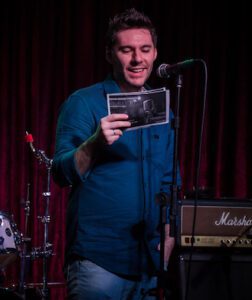What would be the basic precautions regarding food, sleep and vocal health in general? And what should be avoided? What are the dos and don’ts of singing?
First of all, a singing teacher is NOT a general practitioner, or an otorhinolaryngologist, or a speech therapist, or a nutritionist, okay? We can only recommend a few things, but the best thing would be to confirm everything with the respective health professionals.
Especially because the first recommendation would be: learn to “listen” to your body . Foods or attitudes that may be good for one person may not be good for you and vice versa. So, test (more than once) all these recommendations below and keep it as if it were a diary of how your voice behaves. Try to eliminate days when your voice is not working well for other reasons (flu, allergies, etc.).
DO (“Of”)
– Drink lots of water during the day. 2 to 3 liters would be ideal. So you don’t lose count, try to avoid glasses (each one has a different size) and adopt bottles. This will give you a more accurate measurement. The ideal is to distribute this well during the day to stay hydrated and not take too much at once. Water does not pass through the vocal folds and moisturizes them. When the body feels hydrated it produces a substance that lubricates the vocal folds. And the water you drink now takes about 2 hours to cause this effect in the body. So it’s not much use drinking water when you’re singing, just drink small sips to clean possible secretions;
– Healthy eating, preferably with fruits and vegetables. Only on concert and recording days if you want to eat a little more carbohydrate, it will give you a little more energy to handle your vocal commitment;
– Eat an unpeeled apple a day. The apple is astringent and cancels out some of the stomach’s natural acidity. The bark is porous and helps clear secretions;
– Sleep well, 8 hours a day. Quality of sleep is just as important as quantity. In quantity, the recommendation is 8 hours; even if you feel willing with less. In quality, try to pay attention to your pillow, mattress and room temperature;
– Do inhalation 2 to 3 times a week. Especially those who live in big cities have to deal with pollution in addition to dry weather. What’s more, many of us spend a few hours a day in air conditioning. Inhalation hydration is different from drinking water, so it’s important to do both;
– Maintain a rhythm of regular physical exercises, mainly aerobic exercises;
– Maintain a rhythm of frequent vocal technique study (not on the days of events, concerts and recordings);
– Treat any stomach disorders seriously. Gastritis (one of the most common) can cause serious damage to your vocal tract;
– Treat any emotional disturbances seriously. Our state of mind can cause chemical changes in the body which in turn greatly affect the voice;
– Try to understand the limits of your voice (this is different for everyone). Take at least one vocal rest day a week. Learn to save yourself in rehearsals. Try not to book concerts, events and recordings too close to each other and try not to book vocal commitments that last longer than 1h30. Every time you use your voice, do a cool-down routine.
DON’T (“Don’ts”)
– Do not eat (especially if it is a complete meal) less than 1 hour before singing. Digestion movement can get in the way of your performance. Just stay in the water, but even so, it is recommended to take small, well-distributed sips during the 1 hour before your event, show or recording;
– Avoid foods and drinks that contain caffeine (coffee, mate tea, etc.). Caffeine acts by dehydrating the body and can disturb its hydration and consequent production of the substance that lubricates the vocal folds;
– Avoid foods that cause throat clearing or secretion such as milk, yogurt, cheese, cocholate (and all dairy products), coke and very greasy foods;
– Avoid very hot drinks on cold days and very cold drinks on hot days. Heat shock may not be good for your voice;
– Avoid alcoholic beverages. For the same reason as those containing caffeine;
– Try to avoid stressful or sad situations. Even if it doesn’t cause any mental illness (see item 7 of the “ dos ”), it will definitely affect your way of singing, at least on that specific day.
– Do not carry out a bodybuilding workout less than 6 hours before your event, show or recording. Weight training involves hypertrophy, which builds up tension throughout the body and can be detrimental to your singing;
– Do not sing without warming up your voice fully;
– Avoid being too close to people with flu symptoms, especially in periods close to your show, event or recording;
– Avoid environments where people are smoking. Even if you’re not a smoker, being in an environment where people are smoking can be harmful to your voice.
Ten things to do and ten to avoid. Many of them are also general health indications for you, but they will certainly make all the difference for you who want to have a long professional or amateur career in singing.

